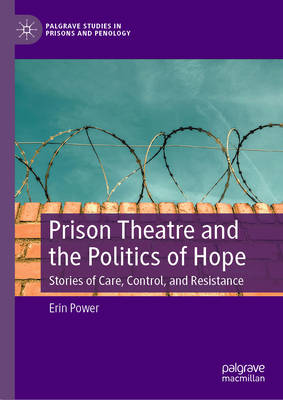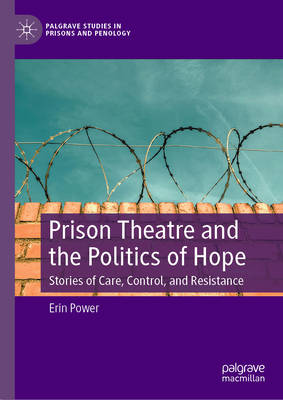
Bedankt voor het vertrouwen het afgelopen jaar! Om jou te bedanken bieden we GRATIS verzending (in België) aan op alles gedurende de hele maand januari.
- Afhalen na 1 uur in een winkel met voorraad
- In januari gratis thuislevering in België
- Ruim aanbod met 7 miljoen producten
Bedankt voor het vertrouwen het afgelopen jaar! Om jou te bedanken bieden we GRATIS verzending (in België) aan op alles gedurende de hele maand januari.
- Afhalen na 1 uur in een winkel met voorraad
- In januari gratis thuislevering in België
- Ruim aanbod met 7 miljoen producten
Zoeken
€ 198,45
+ 396 punten
Omschrijving
This book examines the role of the prison in the commissioning and delivery of theatre practice. It draws attention to discourses of publicly acceptable arts and other mechanisms of 'soft power' which shape access to prison theatre. Each chapter utilises engaging storytelling methods based on the authors own experience as a prison theatre practitioner to illustrate theory. The book explores understandings of the value of arts in prison and discuss how, in a neoliberal society, people in prison can be conceptualised as 'deserving' or 'undeserving' of these practices. It examines the role of the arts organisation in designing and delivering commissionable arts practice and in caring for both practitioners and participants. It also discusses the role of the university and the facilitator in delivering work that balances the often-conflicting agendas of the prison, the arts organisation and the participants alongside their own aims within a context of precarious employment. Finally, it examines the experience of participating in prison theatre, exploring incidents of care, interdependency and collective joy within the prison and assessing how, through the delivery of short-term and insecurely funded arts projects, prison theatre can produce experiences of both hope and harm.
Specificaties
Betrokkenen
- Auteur(s):
- Uitgeverij:
Inhoud
- Aantal bladzijden:
- 228
- Taal:
- Engels
- Reeks:
Eigenschappen
- Productcode (EAN):
- 9783032109316
- Verschijningsdatum:
- 7/02/2026
- Uitvoering:
- Hardcover
- Formaat:
- Genaaid
- Afmetingen:
- 148 mm x 210 mm

Alleen bij Standaard Boekhandel
+ 396 punten op je klantenkaart van Standaard Boekhandel
Beoordelingen
We publiceren alleen reviews die voldoen aan de voorwaarden voor reviews. Bekijk onze voorwaarden voor reviews.









